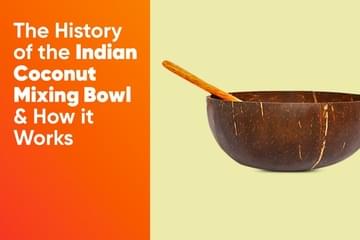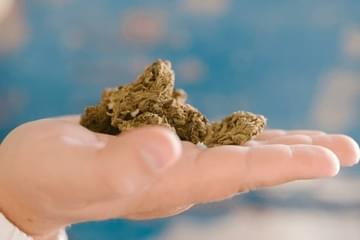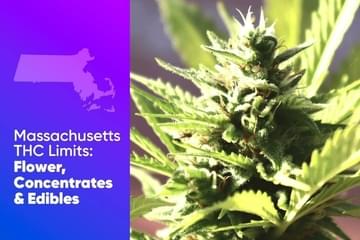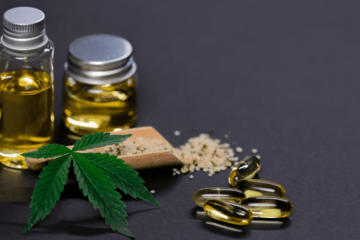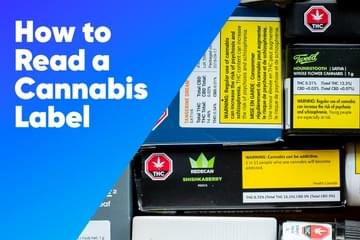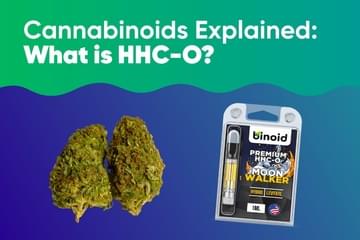
Cannabinoids Compared: HHC vs. HHC-O and HHC-P
Published on 1/22/23
While it's almost impossible not to know about significant cannabinoid compounds like THC and CBD since they've gone mainstream over the past few decades, some other lesser-known cannabinoids haven't gotten their proper shine. However, that lack of public attention and acknowledgment doesn't take away from their profound effects.
Those cannabinoid compounds still have a crucial role in the recreational and medical benefits of the cannabis plant itself! One of those lesser-known but incredibly important and potent cannabinoid compounds is tetrahydrocannabinol, otherwise known as HHC.
However, you'll know there's far more to HHC than the original compound. You'll also need to keep HHC-O and HHC-P in mind as well! Thankfully, we here at Where's Weed are here to alleviate confusion, and misconceptions, giving you the cold, hard facts about the ins and outs of each of these compounds. After all, is there a difference between HHC and HHC-O? And what about HHC-P?
This piece is your go-to guide for anything HHC vs. HHC-O vs. HHC-P-related. Before we get into the nitty gritty about what makes each of these compounds unique, let's first go in-depth on what they are in the first place!
What is HHC?
Initially discovered in the mid-1900s by an American chemist experimenting with THC, HHC has been a known quantity for some time. Chemically identical to THC, besides two additional hydrogenated carbon molecules, HHC interacts with our brain's CB1 and CB2 receptors the same way as pretty much any other cannabinoid compound present in the plant.
So why hasn't it been more well-known by the mainstream cannabis consumer? To put it bluntly, it's because HHC is widely known to be milder than standard Delta 9 THC. So can HHC get you high? Yes, but it won't be as strong as the high provided by standard THC.
It's just not as good at getting users high as THC is. Cannabis consumers, especially on the recreational side, have long chased the highest concentrations of THC and ignored all of the other cannabinoids, so it's no surprise that HHC has been an afterthought for consumers and amateur cannabis growers for quite some time.
What is HHC-O?
While HHC is an offshoot of THC, HHC-O is an offshoot of HHC. So what are the core differences at the root of the HHC-O vs. HCC question?
Aside from the added acetate nature that makes HHC-O unique, it's also said to be as much as 1.5 times more potent! Often regarded as "super HHC" by cannabis enthusiasts, the psychoactive effects of HHC-O are nothing to sneeze at.
Often said to have sedative, soothing effects similar to that of THC, it's also excellent at easing anxiety and stress-related issues like CBD. HHC-O is often regarded as the best of both worlds regarding cannabinoid effects, providing the hard-hitting psychoactive nature of THC with all of the medical benefits of CBD.
What is HHC-P?
While HHC and HHC-O might be considered niche and under the radar for cannabis consumers, HHC-P is EVEN DEEPER under the radar than the previous two entries on this list. Another derivative of HHC, Hexahydrocannabiphorol (HHC-P for short), is a potent psychoactive compound, which, according to whom you ask, is even stronger than traditional Delta 9 THC. That's a key reason this cannabinoid compound has earned the nickname "the king of all cannabinoids."
That's a massive claim, right? So there must be some serious evidence to back it up. Well, sort of. While there's nowhere near enough research to say definitively one way or another if HHC-P lives up to the hype, there's been some encouraging signs that link it with THC.
For example, both HHC-P and THC have incredibly similar chemical compounds with seven-carbon tails that provide the psychoactive cannabinoid effects that both are known for. Due to that long tail and chemical structure, HHC-P binds with CB1 receptors 33 times stronger than standard Delta 9 THC. That stronger bond leads to a much stronger high, gaining momentum and recognition from experienced cannabis users. While more research needs to be done, the potential for HHC-P is limitless!
HHC vs. HHC-O vs. HHC-P: Analyzing the Key Differences
Now that we've broken down what exactly each of these compounds is let's go in-depth into what exactly makes them different in the first place. While it's true that these compounds each have things in common, their differences can be broken down into three different sub-categories: Extraction methods, effects, and chemical structure.
Extraction Methods
 CBD Oracle
CBD OracleGetting your hands on some pure HHC is a complicated process. Typically, the only way to get pure HHC from THC involves a complex isomerization process, using acid as a solvent to change the compound's basic chemical structure. Once you have that HCC isolated, further breaking down, separating it, and adding acetic anhydride results in HHC-O and HHC-P.
While these differences might not seem like a big deal on the surface, the reality is that those tiny differences in extraction methods make a world of difference!
Effects
Perhaps the thing that divides each of these three compounds the most is the various effects. HHC, a true cannabinoid, is made to bond perfectly with CB1 and CB2 receptors, which means you'll get effects from almost any amount you ingest.
HHC-O and HHC-P are acetate-enhanced, boosting both compounds' effects and metabolism rate. Both bond with the CB1 and CB2 receptors, similarly to standard HHC, but the different chemical compounds change and amplify the effects on the users.
HHC-O, for example, has a milder and faster-acting psychoactive effect than standard THC while remaining slightly less powerful. HHC-P, on the other hand, produces an even stronger high than THC, offering a serious cannabinoid-powered kick.
As a result of those differences, HCC-O can be seen as a legal alternative for standard THC in states where it's still illegal. In contrast, HCC-P can be seen as an additive that can take even the most experienced stoner to their limits of psychoactivity!
Chemical Structure
While the three compounds have a lot of similarities since they're all offshoots of one another, some essential differences make the three compounds unique!
At its core, HHC is identical to THC, aside from the presence of a double bond in the cyclohexane ring. That means extra hydrogen in the structure that separates HHC from THC in its construction, chemical compounds, and effects.
The same idea goes into play for the two offshoots of HHC. As part of the acetate group, the core difference between HHC-O and other compounds is an extra oxygen molecule added via HHC reacting with acetic anhydride.
And when it comes to HHC-P, it's most similar to the chemical structure of Delta 9 THC. Adding an extra carbon molecule adds some length to that long tail structure, making HHC-P unique. HHC-P takes THC's effects and runs with them. That's why HHC-P is known as a powerful cannabinoid that even exceeds THC in psychoactive effects!
The Bottom Line
The core similarities and differences between the two are small but mighty. You get individual compounds with profound effects, just an extra molecule here or there. The best thing about all three is that technically all three are perfectly legal!
Since HHC itself is often derived from hemp, the passage of the 2018 Farm Bill ensured that all three of these compounds could be legally sold on retail store shelves. As long as they contain less than .3 percent THC, those compounds are legal by the letter of the law!
That makes them all great options for those looking to stay out of legal trouble and enjoy psychoactive cannabinoid compounds quickly and easily. Whether you grab some HHC, HHC-O, or HHC-P, you'll be able to have a fun, safe, and legal time in states where recreational cannabis has yet to be approved!









